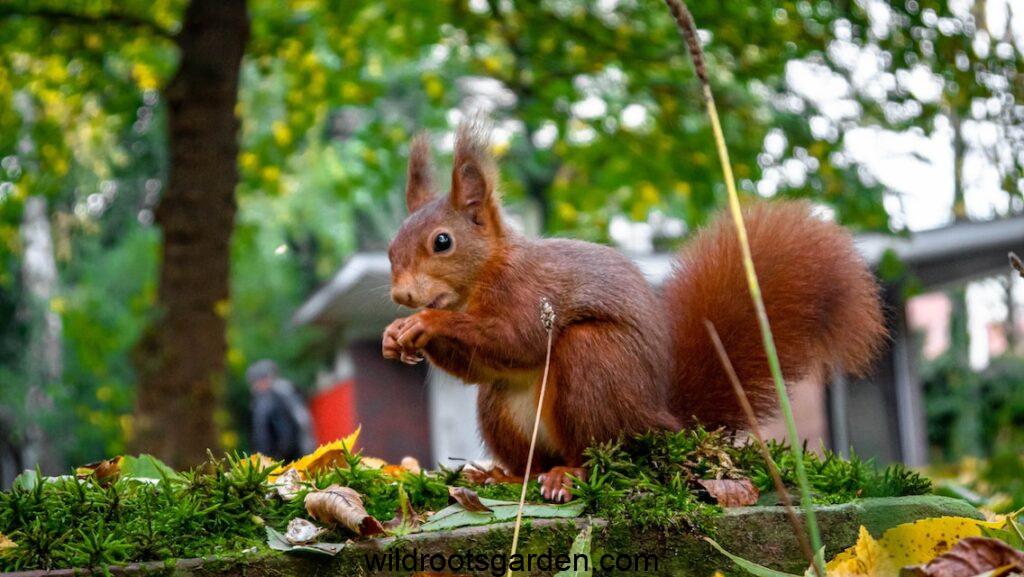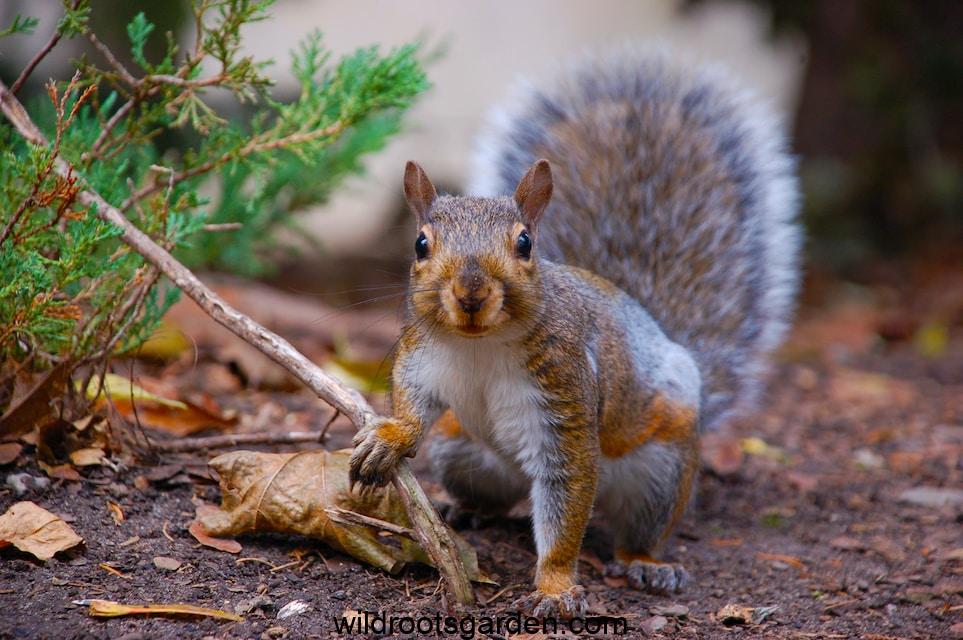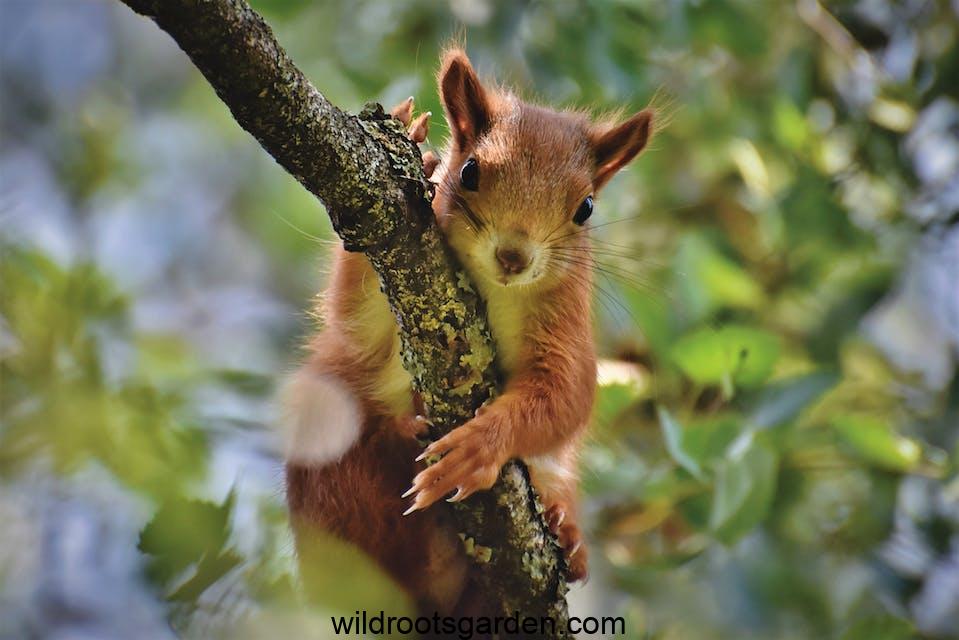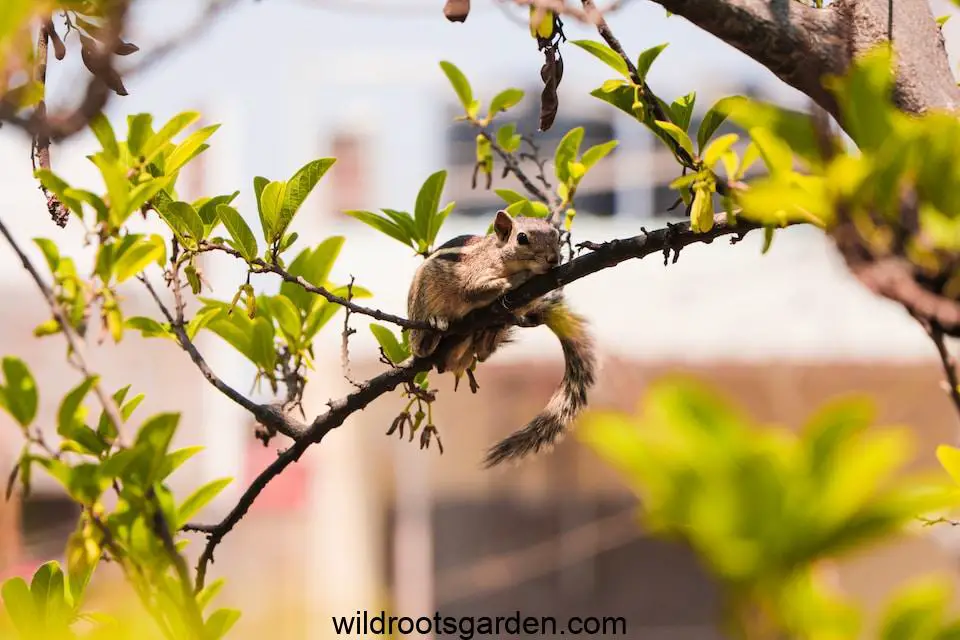How to Keep Squirrels Out of Your Potted Plants: Squirrels are cute and playful creatures that can bring joy to any backyard or garden. However, when it comes to potted plants, they can quickly become a nuisance. Squirrels have an instinct to dig and forage for food, and unfortunately, potted plants can become their target. Not only can they damage your plants, but they can also create a mess in your garden. If you’re tired of constantly finding your potted plants destroyed by squirrels, don’t worry, there are ways to keep them out. In this article, we will discuss effective methods to keep squirrels away from your potted plants.
JUMP TO TOPIC
- 1 Table of Contents
- 2 How to Keep Squirrels Out of Your Potted Plants: The Dangers of Squirrels in Your Potted Plants
- 3 Effective Methods to Keep Squirrels Out of Your Potted Plants
- 4 Other Tips to Keep Squirrels Away
- 5 FAQs about How to Keep Squirrels Out of Your Potted Plants:
- 6 Final Thoughts
- 7 Resources:
Table of Contents

How to Keep Squirrels Out of Your Potted Plants: The Dangers of Squirrels in Your Potted Plants
Squirrels may seem harmless, but they can cause significant damage to your potted plants. Here are some of the dangers of having squirrels in your garden:
- Damaged plants: Squirrels have an instinct to dig and forage for food. This can lead to them digging up your potted plants, damaging the roots and potentially killing the plant.
- Stolen fruits and vegetables: If you have potted plants that produce fruits or vegetables, squirrels may see them as a food source and steal them before you have a chance to harvest them.
- Spread of diseases: Squirrels can carry diseases and parasites that can be harmful to both humans and plants. If they come into contact with your potted plants, they can spread these diseases and cause damage.
- Attracting other pests: Squirrels can attract other pests, such as rats and mice, to your garden. These pests can also cause damage to your potted plants and create a bigger problem.

Effective Methods to Keep Squirrels Out of Your Potted Plants
Now that we understand the dangers of having squirrels in our potted plants, let’s explore some effective methods to keep them out:
1. Use Physical Barriers
One of the most effective ways to keep squirrels out of your potted plants is by using physical barriers. This can include placing a wire mesh or chicken wire over the top of your potted plants. Make sure the mesh is small enough to prevent squirrels from getting through, but large enough to allow sunlight and water to reach your plants. You can also place a layer of gravel or rocks on top of the soil to make it difficult for squirrels to dig.
Another option is to use a cloche, which is a transparent cover that can be placed over individual plants. This will not only protect your plants from squirrels but also from other pests and harsh weather conditions.
2. Use Squirrel-Repellent Plants
Believe it or not, certain plants squirrels dislike and will avoid. These plants have a strong scent or taste that squirrels find unpleasant. Some examples of squirrel-repellent plants include daffodils, hyacinths, and alliums. You can plant these around your potted plants to act as a natural deterrent.
Additionally, you can also use herbs such as mint, rosemary, and lavender, which have a strong scent that squirrels dislike. Planting these herbs in and around your potted plants can help keep squirrels away.
3. Use Squirrel-Repellent Sprays
If you don’t have access to squirrel-repellent plants, you can use commercial squirrel-repellent sprays. These sprays contain natural ingredients that squirrels find unpleasant, such as hot pepper, garlic, and vinegar. You can spray these directly on your potted plants or around the perimeter of your garden to keep squirrels away.
Alternatively, you can make your squirrel-repellent spray at home using ingredients like cayenne pepper, garlic, and water. Simply mix these ingredients and spray them on your plants. Just be sure to reapply after it rains.
4. Use Squirrel-Proof Containers
Squirrels are excellent climbers and can easily jump from one plant to another. To prevent them from accessing your potted plants, consider using squirrel-proof containers. These containers have smooth sides that make it difficult for squirrels to climb. You can also place a layer of gravel or rocks on top of the soil to make it even more challenging for them to dig.
5. Use Squirrel-Proof Netting
If you have potted plants that produce fruits or vegetables, you can use squirrel-proof netting to protect them. This netting is made of a fine mesh that prevents squirrels from accessing your plants. Simply drape the netting over your plants and secure it with clips or ties.
6. Use Squirrel-Proof Bird Feeders
Squirrels are notorious for stealing bird food from bird feeders. If you have bird feeders in your garden, make sure they are squirrel-proof. These feeders have mechanisms that prevent squirrels from accessing the food, such as weight-activated perches or cages.
7. Use Squirrel-Proof Bird Seed
If you don’t want to invest in a squirrel-proof bird feeder, you can also use squirrel-proof bird seed. These seeds are treated with a bitter taste that squirrels dislike, but birds can’t taste. This will prevent squirrels from stealing the bird food and potentially damaging your potted plants.

Other Tips to Keep Squirrels Away
In addition to the methods mentioned above, here are some other tips to keep squirrels away from your potted plants:
- Keep your garden clean: Squirrels are attracted to gardens that have a lot of debris and clutter. Make sure to keep your garden clean and tidy to discourage them from making a home there.
- Remove potential food sources: Squirrels are opportunistic creatures and will take advantage of any available food sources. Make sure to remove any fallen fruits or vegetables from your garden and keep your garbage cans tightly sealed.
- Use motion-activated sprinklers: Motion-activated sprinklers are a great way to scare off squirrels. These sprinklers will turn on when they detect movement, which will startle the squirrels and make them think twice about coming back.
- Plant in raised beds: If you have the space, consider planting your potted plants in raised beds. This will make it more difficult for squirrels to access them.
FAQs about How to Keep Squirrels Out of Your Potted Plants:
How do you keep squirrels from digging in potted plants?
There are several methods, from physical barriers to scents they dislike:
Barriers: Cover the soil with chicken wire, mesh netting, or decorative rocks.
Scents: Sprinkle cayenne pepper, garlic powder, coffee grounds, or predator urine around the pots.
Sprays: Make a DIY spray with water, hot pepper flakes, vinegar, or garlic oil.
Plants: Grow squirrels’ least favorite plants like daffodils, marigolds, or castor beans.
Visual deterrents: Hang pinwheels, CDs, or reflective objects near the pots.
What is the best homemade squirrel repellent?
A combination of strong scents and deterrents works best. Mix cayenne pepper, garlic powder, and coffee grounds in equal parts, and sprinkle around the soil. Top it with decorative rocks for a double whammy.
What do squirrels hate the most?
Squirrels dislike strong smells like capsaicin (in peppers), garlic, vinegar, and predator urine. They also avoid prickly surfaces and shiny objects.
What is a good squirrel deterrent for plants?
A physical barrier like chicken wire is the most effective, while scent repellents need reapplication. Planting squirrel-unpalatable plants offers a long-term solution.
What smell squirrels hate?
Capsaicin (hot peppers) is a top squirrel-repellent scent. Other strong odors like garlic, vinegar, and citrus oils also deter them. Predator urine like fox or coyote is particularly effective.
Final Thoughts
In the end, while squirrels may continue to be a nuisance when it comes to potted plants, their presence serves as a reminder that nature cannot always be controlled or tamed. Instead, it teaches us to embrace the unpredictability and challenges that come with coexisting with the creatures that share our world, making the victories in our gardening endeavors all the more rewarding.
Resources:
- National Wildlife Federation: https://pestpointers.com/scents-that-squirrels-hate-and-how-to-use-them/ – Offers information on squirrels and wildlife-friendly solutions.
- Videos:
- Garden Answers: https://m.youtube.com/watch?v=96RHmjT9m0U – Offers a visual guide to different methods.
- Crooked Gardener: https://m.youtube.com/watch?v=7cJe-B61bV4 – Shares DIY repellent recipes and tips.


